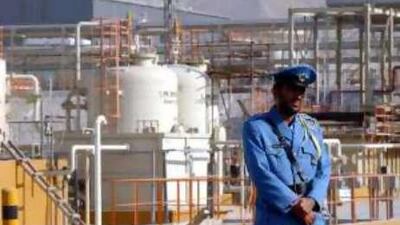Iran's government has revised the terms of a stalled deal to export gas to the UAE, but it is unclear whether this will help or hinder negotiations aimed at getting the gas flowing. "The oil ministry and other officials are revising the deal's terms," said Mohammed Reza Rahimi, Iran's vice president for legal and parliamentary affairs, according to Shana, the official Iranian news agency. "The term that covers the price formula is fixed for seven years. That has been omitted and the country's assets will be preserved."
Iran and Crescent Petroleum, a privately held Sharjah oil and gas company, have been mired in negotiations for more than two years over the price of gas exports from Iran's offshore Salman gasfield to the UAE. An undersea pipeline that Crescent built to transport 600 million cubic feet per day of gas to receiving facilities in Sharjah has been empty since its 2006 completion. Dana Gas, a Crescent affiliate that was expecting to process and distribute gas from the US$1 billion (Dh3.67bn) project to UAE utilities and industrial users, listed its shares on the Abu Dhabi Securities Exchange in 2005 in anticipation of the deal's imminent closure.
Iran said in April that it would use the gas promised to Crescent domestically if the price dispute could not be settled. A government official later said plans were in place to build a pipeline from the Salman field to the Iranian mainland. A spokesman for Crescent and Dana said the companies were aware of the Iranian pipeline proposal. He said it was a longstanding project that would not affect their pending deal, because the Salman field had sufficient gas to fill two pipelines.
Crescent and Dana officials could not be reached in Sharjah for comment on the Iranian government's latest move. Hamid Zaheri, the general manager of Crescent in Iran, told Reuters that he was "very optimistic" about the deal, and that negotiations were continuing. The companies have been predicting since April that the gas would start flowing "within three months". Mr Rahimi is on record as opposing the deal with Crescent as contrary to Iran's interests unless certain aspects of the contract are "corrected".
Sharjah, like the rest of the UAE's northern emirates, faces an acute shortage of gas to fuel power plants and industrial developments. Iran, with the world's second-biggest gas reserves after Russia, also produces insufficient gas for its domestic needs. It is nonetheless developing gas-based industries such as petrochemicals at Assaluyeh on its Gulf coast. * With agencies @Email:tcarlisle@thenational.ae

